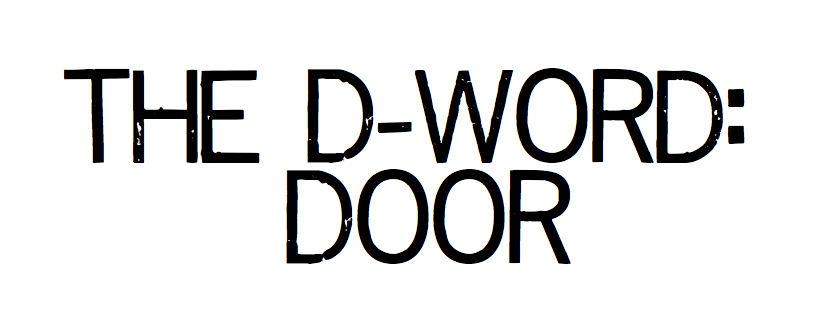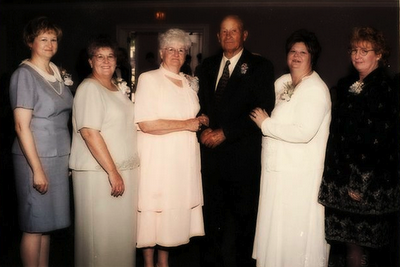The D Word...
We just got back from America yesterday, and we had an amazing visit for three whole weeks. We saw lots of friends and family and ate a ridiculous amount of food. We knock on lots of doors and visit people we haven't seen since last year or even longer. I love the act of knocking on a door, then hugging and kissing the people behind it! I loved Thanksgiving, with the sounds of "Hello!" ringing out every time the screen door slammed. There's a loud beauty to it, especially with my family.
"Home" for me has changed so many different ways in the last 6 years. Even in the last year since our previous visit, many places I've known my whole life feel unrecognisable. The changes feel slow when you are living somewhere. They look huge and glaring when you are only there every year or so. The children in my family are many inches taller, and they probably see Ella as a big girl, when she was a baby the last time we were home.
The biggest change this time was my grandfather, called PaPa and pronounced "Paw-paw." Every year that I have been away and a few years before, he has said that he was probably not going to make it to Christmas, which also happens to be his birthday. This Christmas, which will be his 90th birthday, it might be true. I caught Ella with a toy stethoscope checking Papa's heart, and it brought tears to my eyes. Surely her parroted "bump-bump...bump-bump" was too fast and too regular for his ailing, failing heart.
When you live an ocean away from a big group of people that you love, you see things in a weird way. Every time you leave them, there is a grieving process. I've gotten better at this since Josh and I got married five years ago, but it's still hard. I know that if something suddenly happened to my aunts or uncles or granny, I probably wouldn't make it back to see them again. I hug my granny and smell her rose-hand-cream-and-hairspray smell because I know it might be the last time.
I hold my Papa's hand, which used to be strong like a boulder. This time, it was small and thin. When I put my arm around him, I can feel the bones of his shoulders, which used to be rippling with muscle. His legs, which used to remind me of tree trunks, are always covered with a blanket now.
And he's not taking it very well. The death that he always joked was coming is actually going to happen. I don't think he has as much humour about it as he wanted us to think. In fact, I think that by being angry and sort of scared that he's realised something important.
The D Word? It's not death as we know it. The world around us wants us to think that death is an ending of something. Medical shows where they call "Time of death?" seem to tell us that the stopping of heart function is the end. It wants us to believe that death is final and swift and some dark-hooded figure will simply come for us, and the curtains will be drawn around our lives.
But it's not true, friends. Death is a door. It isn't closing on us. It's opening to us. And it's not a door that gives away any secrets. It's not a South Georgia screen door slamming that gives you a cloudy idea of what's on the other side. It's more like one of those heavy bank vault doors that take two people to blast open in a movie.
I'll tell you a secret. I'm scared and angry to die too. Because secretly, I don't know what's on the other side of that door either. What do I want it to be? I want it to be light and peace and angels. I want it to be people that I miss who have died. I want it to be the face of God and the enveloping arms of Jesus. But truthfully, I'm still not sure. Not all the time. What does death feel like? What does it look like? What happens when our hearts stop beating?
I read an amazing book last year on this called In the Midst of Life by Jennifer Worth (who is also the author of Call the Midwife). Besides being a midwife, she also became a nurse for the Marie Curie Cancer Hospice, one of the first of its kind in England. She witnessed the beginning of life and the end for hundreds of people. But even in the 1950's, she was told not to pry. When, as a student nurse, she asked her Matron why they were doing "life-saving" measures on people who did not want to live any more, her response was quick:
"Nurse, you are young and passionate. You are trying to understand a subject too deep for for understanding. Medical science has found hundreds of death-defying tactics and, as this century unfolds, thousands more will become available. We do not know where it will end...I advise you, Nurse, not to talk freely with other people on this subject. It is dangerous."
I love that she does the opposite. She wants to know why people want to extend life, and why we have become so far removed from death and dying. She sees people go through that door, some comforted and "at peace", while others are afraid and suffering.
I want to be the comforted person. But to be that way, you have to seek out the comfort. I don't think that peace and comfort just descend down on people in a magical cloud right before death. Clearly, the way that we live has an effect on the way that we die. My PaPa clearly feels like the door is opening, but he doesn't have much peace about it.
I always loved that in the Bible, when Jesus or the apostles or people saw one another they said "Peace!" Paul opened a lot of his letters with "Grace and Peace to you!" In mass, most Catholics still say "Peace be with you" and kiss or hug one another. It's not something we automatically have. We have to give it, and we have to receive it from others. I receive my peace from being quiet and praying and writing. I choose to accept the kind of peace that Jesus came to give us. I love that he made a point of saying: "My peace do I give to you. Not as the world gives do I give to you. Let not your hearts be troubled. Neither let them be afraid." People use this scripture a lot at funerals. Maybe we ought to be using it more before them.
 I heard a pastor once talking on the radio about Advent. He said (and you have to imagine this in a Southern American, drawling kind of way): "Advent comes from Latin. Add-ven-ee-ray means 'to arrive' and "Add-ven-too-rus means 'Something's about to happen!'" I loved that. Something's about to happen, to arrive. So it's significant that each day before Christmas, we open a little door in our advent calendar with Ella. We can risk opening the door to busyness and tiredness. We can choose to open the door to something sweet and lasting and deep.
I heard a pastor once talking on the radio about Advent. He said (and you have to imagine this in a Southern American, drawling kind of way): "Advent comes from Latin. Add-ven-ee-ray means 'to arrive' and "Add-ven-too-rus means 'Something's about to happen!'" I loved that. Something's about to happen, to arrive. So it's significant that each day before Christmas, we open a little door in our advent calendar with Ella. We can risk opening the door to busyness and tiredness. We can choose to open the door to something sweet and lasting and deep.
We can also prepare ourselves for this adventure, for this arrival. Christmas wreaths have a long history. Long before Jesus' birth, the evergreen wreath symbolised the strength of life overcoming the forces of winter, and the circle represented immortality. We can overcome what's coming for all of us. We can put up immortality on that last door. We can push out fear and helplessness and replace it with words of peace.
I'll leave you with the translated words of Heinrich Suso, a German Christian mystic from about 1340. I once read that in the original Latin, the words actually said "Good Christians, all men, rejoice." but that John M. Neale thought that he was correcting bad doctrine by changing the lyrics to just Christian men. Let's say I agree with Suso's message more.
Good Christians, all, rejoice, with heart and soul and voice;Now ye hear of endless bliss: Joy! Joy! Jesus Christ was born for this!He has opened the heavenly door, and man is blest forevermore.Christ was born for this! Christ was born for this!



Comments
Post a Comment